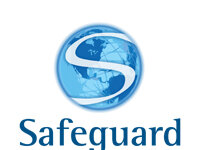 Quality is a word that is used frequently in mortgage lending today, largely because of our transition toward compliance readiness for impending policies, rules and regulations. But what do we mean when we talk about quality? Is it simply meeting standards set by some external organizations, or is it something more?
Quality is a word that is used frequently in mortgage lending today, largely because of our transition toward compliance readiness for impending policies, rules and regulations. But what do we mean when we talk about quality? Is it simply meeting standards set by some external organizations, or is it something more?
Certainly, there is a direct correlation between quality and customer experience. Delivering a high-quality product and service generally results in a positive experience for consumers, ideally leading to repeat business. Poor quality may impact individual consumer experience and increase repurchase demand, but the real loss to lenders is felt from resulting compliance audits and fines, or worse, a major settlement.
In a multi-stage manufacturing process, such as what we have in mortgage lending, quality detractors caused by defects can be hard to identify and, therefore, often go unnoticed. But there’s always a cost because it inevitably impacts consumers. We’ve seen this play out in other industries, e.g., automotive, sometimes to the detriment of major brands.
Fortunately, we work in an industry where defects in our manufacturing process aren’t life-threatening for consumers – but they can be life-altering. The impact can range from an inconvenient delay in closing on a home to losing a home, like we witnessed during the mortgage crisis. Meanwhile, mortgage lenders suffer in numerous ways, not the least of which is damage to reputation and credibility.
We simply cannot underestimate the value of quality in our business; its importance does not just lie in compliance readiness, but in our responsibility to our industry and to our customers.
When good quality goes bad
No one wants to be the cause of loan manufacturing defects, so how do mistakes happen? Typically, the two biggest culprits are speed and cost, that is, our desire to increase production and reduce expenses. While these are the go-to fixes, they are not always effective. As we get pushed to do things faster and more inexpensively, the unintentional consequence is the degradation of quality.
This applies to mortgage lenders and service providers alike. Prior to 2008, when the housing market was really moving, we were all focused on doing more. We designed vendor management platforms or speed tracking systems that pushed us to go ever faster, but the result was a breakdown of communication, transparency, and controls that led to serious legal and policy responses, which forever changed our industry.
Indeed, it is a different world today. Who’s regulating us for speed? No one. Who’s regulating us for quality? Everyone. Improving quality will help reduce underperforming loans and lessen consumer complaints and compliance risk. This is the impetus for a total quality mortgage manufacturing process, which will require end-to-end solutions to deliver defect-free loans while keeping up with the e-processing needs of our industry.
Are your vendors quality-focused?
While you likely have made the shift from being production-focused to quality-focused, it is just as important that your third-party vendors are, too. Because, as a mortgage lender, you are now being held accountable for the actions of the vendors you trust to help deliver your product to consumers.
But, how can you tell if a third-party vendor is committed to quality improvement and can back you up in the event of an inquiry or audit? Below are three revealing questions you could ask (download the infographic).
1.) Are you investing capital back into your core business line?
Vendors making investments in the business will have the ability to maintain high-quality standards, even as volume levels fluctuate. By comparison, as vendors downsize or diversify capital into other markets, the availability of their non-operational resources and capacity to focus on the increased compliance requirements may be affected. So will their ability to better understand the customer experience and how to improve it.
2.) Do you have a business unit dedicated to controls and governances?
In the event you are audited, it is likely that your vendor will also be asked to produce detailed documentation regarding their standardized processes and procedures. Vendors that have a dedicated business unit in place will not only have this documentation readily available, but will have the acumen to explain its relevance, application and any allowable variances during an audit process.
3.) How have you improved your focus on in-process quality control (QC) since 2008? Â
The best way to facilitate a positive outcome on forensic audits is to identify and resolve defects during the process, before the audits occur. Vendors that have changed their internal structures to support dedicated QC, have implemented new systemic programs to reduce defects (like Six Sigma), and are actively using automated analytics will likely rank the best on independent audits.
Beyond compliance, what’s next?
The future of the mortgage industry is dependent upon improving and maintaining quality, and the survival of any business in this industry is dependent upon becoming quality-focused. However, achieving quality with a customer focus will set companies apart.
Essentially, we’ve had to slow down to speed up, and spend money to help our customers save on costs. But these are the sacrifices we all have to make in order to move our industry forward. In this brave new world of mortgage lending, we all need to make quality happen.
Kevin Wall is president of Santa Ana, Calif.-based First American Financial Corp.’s Mortgage Solutions group, which delivers collaborative and customizable data, analytic, valuation, title, settlement and QC solutions for loan origination and servicing.












